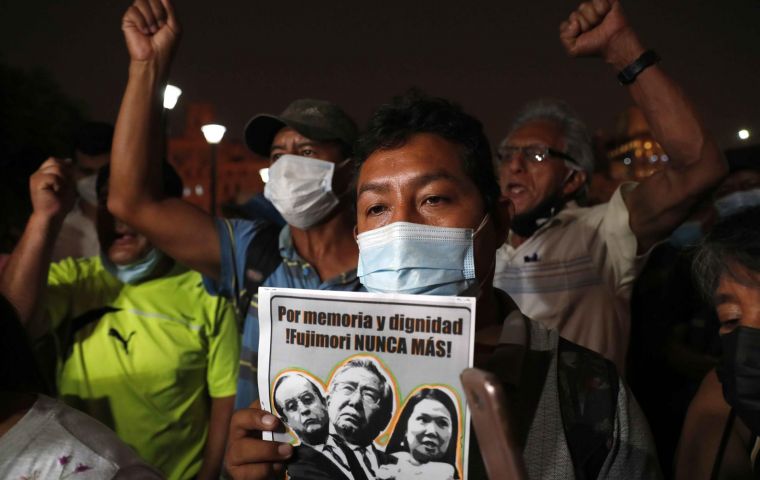MercoPress. South Atlantic News Agency
IACHR concerned over Court decision to reinstate Fujimori's pardon in Peru
 The 83-year-old Fujimori is about to be released from jail
The 83-year-old Fujimori is about to be released from jail The Inter-American Commission on Human Rights (IACHR) Friday said it was “concerned” following Thursday's decision by Peru's Constitutional Court to uphold a pardon to former president Alberto Fujimori, who is about to be released from jail, after being sentenced to 25 years for crimes against humanity.
The IACHR insisted that Fujimori's release would affect “the rights of the victims.”
The court Thursday reinstated a pardon granted to him in December 2017 by then-President Pedro Pablo Kuczynski (PPK), which had been annulled ten months later by the Supreme Court.
“The restitution of the pardon would result in Fujimori's release and the extinction of his sentence, which affects the rights of victims of crimes against humanity, affects their access to justice and injures their dignity,” the IACHR said in a statement.
It also “creates obstacles for the full compliance with the sentences” of the Inter-American Court in the Barrios Altos and La Cantuta cases.
After being extradited from Chile in 2007, Fujimori, who ruled Peru between 1990 and 2000, was convicted for the Barrios Altos (15 deaths, including a child) and La Cantuta (10 deaths) massacres, perpetrated by military squads during his government.
The IACHR recalled that, in 2011, the Inter-American Court of Human Rights declared that the events in La Cantuta constitute “crimes against humanity” and those in Barrios Altos were “serious human rights violations.”
According to international law, amnesties and pardons may not be granted to people having been found guilty of crimes against humanity.
The IACHR, an Organization of American States (OAS) body, therefore insisted that “the official announcement of the restitution of the effects of the pardon” would be “a decision contrary to the international obligations of the State of Peru.”
Read also: Peru's Constitutional Court ruling clears path to Fujimori's release




Top Comments
Disclaimer & comment rulesCommenting for this story is now closed.
If you have a Facebook account, become a fan and comment on our Facebook Page!